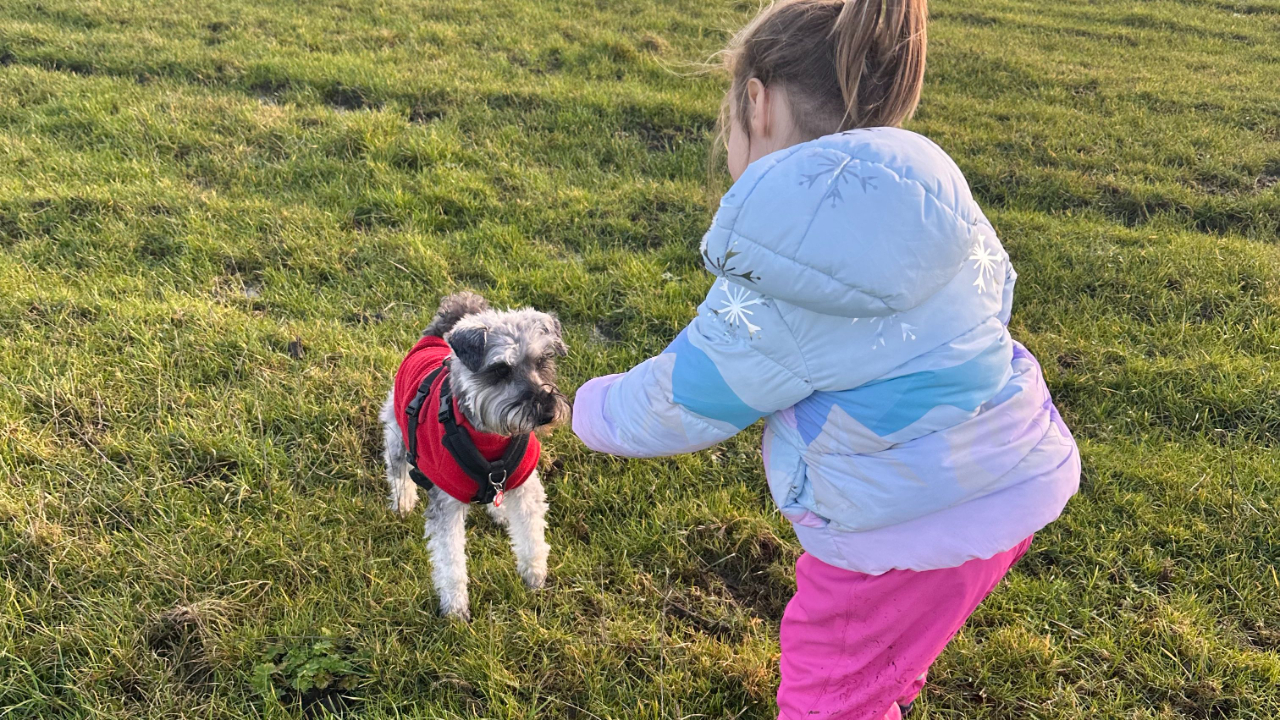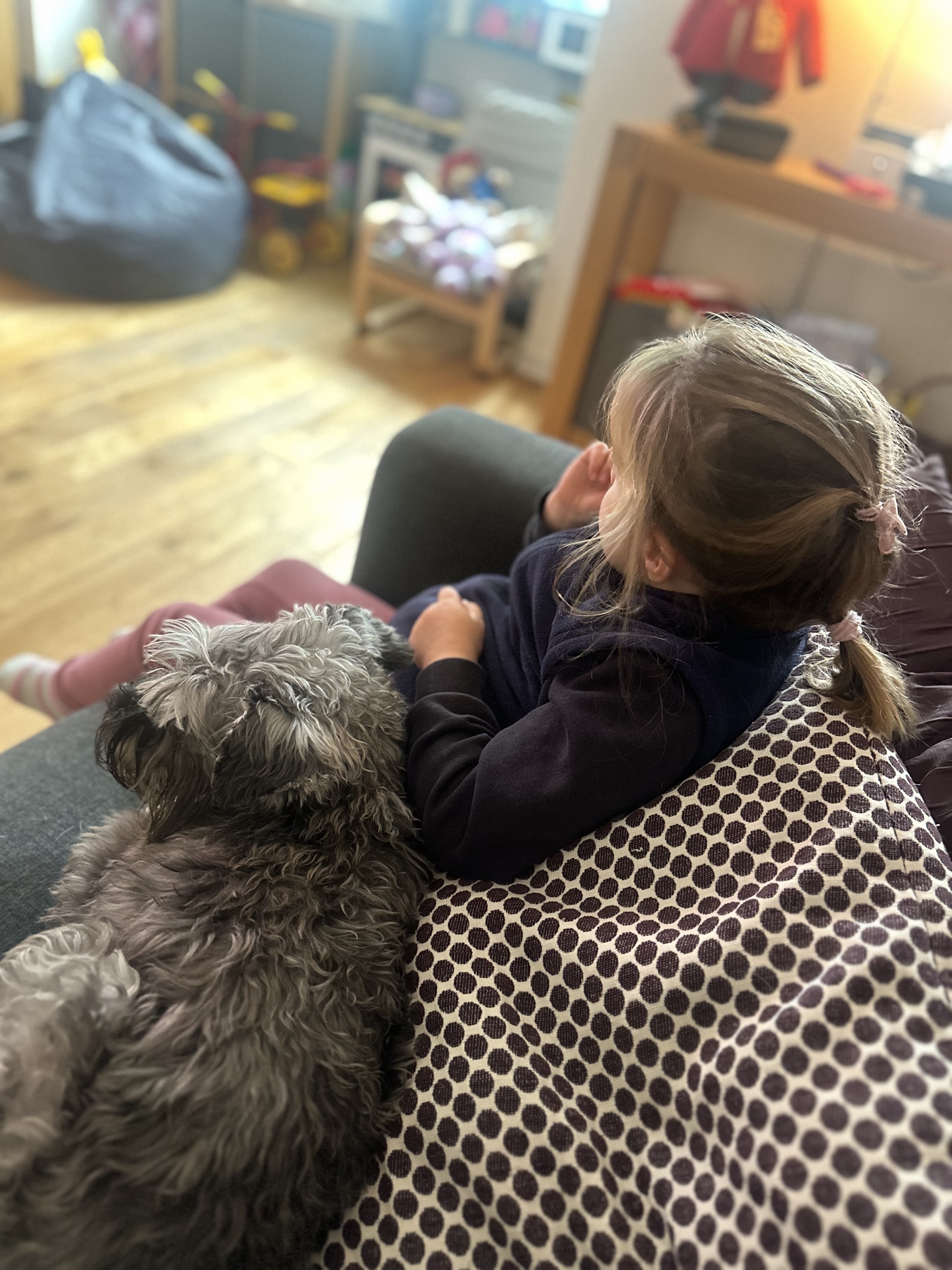
Toddler Grief and Pet Loss: How to Explain When a Dog Dies
Apr 02, 2025When a beloved dog passes away, the grief can be profound for the whole family. But when you have a toddler in the mix, explaining death becomes an entirely different challenge. We recently found ourselves in this position when our good friend’s dog, Bertie, died. Bertie wasn’t just any dog – he was our own dog Chester’s best mate, and our three-year-old daughter had spent a lot of time with him. His absence was very much felt, and suddenly we were faced with the delicate task of helping her understand what had happened.

Keeping It Simple and Honest
With young children, honesty – in an age-appropriate way – is key. When our daughter asked where Bertie was, we resisted the urge to soften the truth with euphemisms. Saying things like "he’s gone to sleep" or "he’s gone away" can be confusing, even frightening, for a toddler. Instead, we gently explained that Bertie had died - that he had been very old and poorly, and that as sad as we all were, we wouldn't get to see him again.
Acknowledging Their Feelings
Even though a three-year-old may not fully grasp the concept of death, they do understand emotions. We let our daughter know that it’s okay to feel sad and that we were feeling sad too. We talked about how much we’d miss Bertie but also how lucky we were to have known him. Allowing her to express her feelings, whether through words, cuddles, or telling stories about Bertie, helped her process things in her own way.
Using Simple Analogies
Sometimes, relating death to something within their understanding can help. We talked about how we'd found insects before that had died, and that things change during seasons - like leaves falling and not growing again. This helped her make sense of the idea that even though Bertie wasn’t with us anymore, we could still remember him and talk about him.
The Importance of Memories
 For a toddler, the concept of 'forever' is hard to grasp, but the idea of memories isn’t. It can be difficult when you have to keep reminding your child that a dog is no longer with us, as it brings up your own sadness again. We had to remind our daughter each time that we would see Bertie's Mum that he would no longer be with her. But we looked at pictures and videos together, talking about how Bertie and Chester used to play together and reinforcing that just because he wasn’t here anymore didn’t mean he was forgotten.
For a toddler, the concept of 'forever' is hard to grasp, but the idea of memories isn’t. It can be difficult when you have to keep reminding your child that a dog is no longer with us, as it brings up your own sadness again. We had to remind our daughter each time that we would see Bertie's Mum that he would no longer be with her. But we looked at pictures and videos together, talking about how Bertie and Chester used to play together and reinforcing that just because he wasn’t here anymore didn’t mean he was forgotten.
Answering the Difficult Questions
Toddlers are naturally curious, and after our initial conversation, the questions kept coming. "Where did Bertie go?" "Can we see him again?" "Will Chester die too?". These were hard to answer, but we tried to keep our responses simple and reassuring. We explained that Bertie had been very poorly but now he wasn't in pain anymore, that he had lived a happy life, and that Chester was still very healthy and with us now.
Finding Comfort in Routine
After a loss, keeping to normal routines can be a great source of comfort for little ones. Chester was still there, ready to play and offer unconditional love, and that helped enormously. We also made sure to keep things familiar – mealtimes, bedtime stories, and daily walks with Chester all carried on as normal, reinforcing a sense of security.
The Gentle Power of Time
Grief doesn’t have a set timeline, even for a child. Some days our daughter still mentions Bertie and asks if he’ll come back, and that’s okay. We have to remember that for toddlers, the concept of death isn't permanent. It's not until children are around 5-7 years (although no child is the same) that they can grasp the concept of someone not returning. When our daughter asks about Bertie coming back, we simply remind her of what we talked about before and let her lead the conversation. Over time, the sadness lessens, and what remains are the happy memories.
Losing a pet is a heartbreaking experience, but it also offers an opportunity to teach children about love and loss. As tough as it was to explain Bertie’s death to our daughter, it also allowed us to show her that it’s okay to grieve - and that love doesn’t disappear. The important thing is to be present for your children when they need to express their emotions - helping them to understand that remembering those we’ve lost keeps them close to us in a different way.

